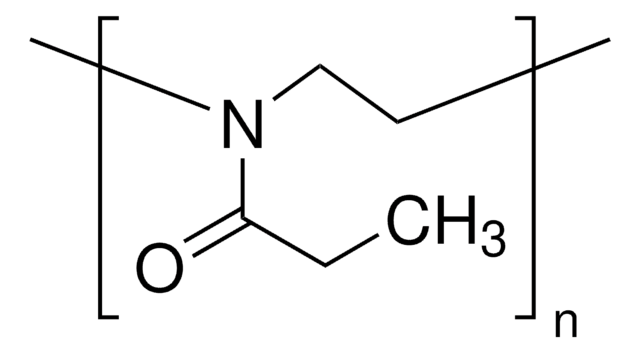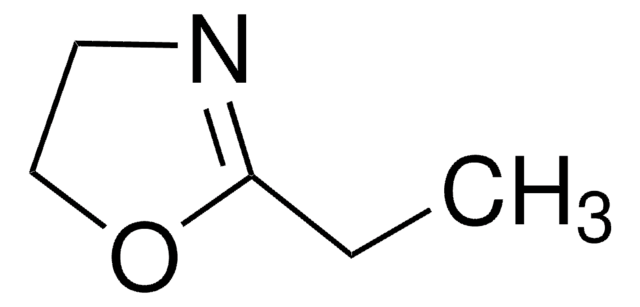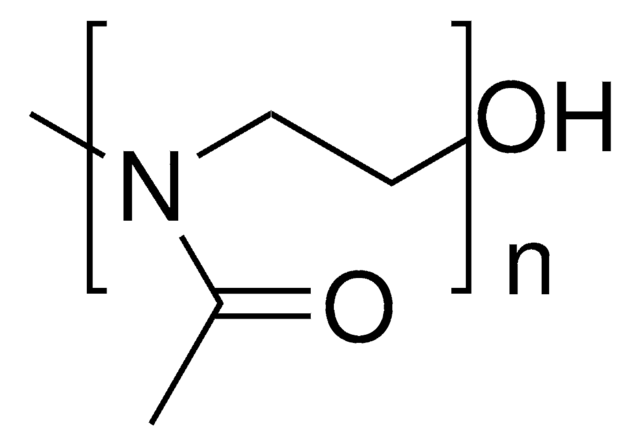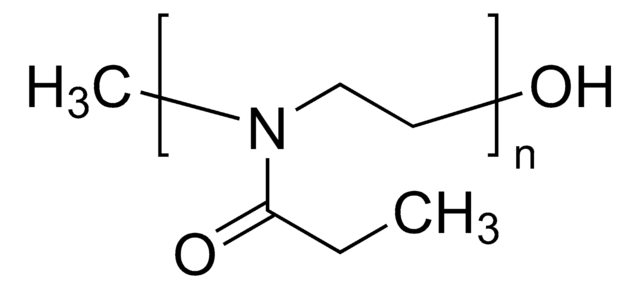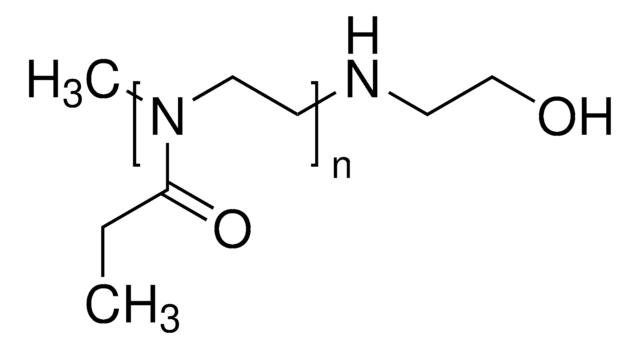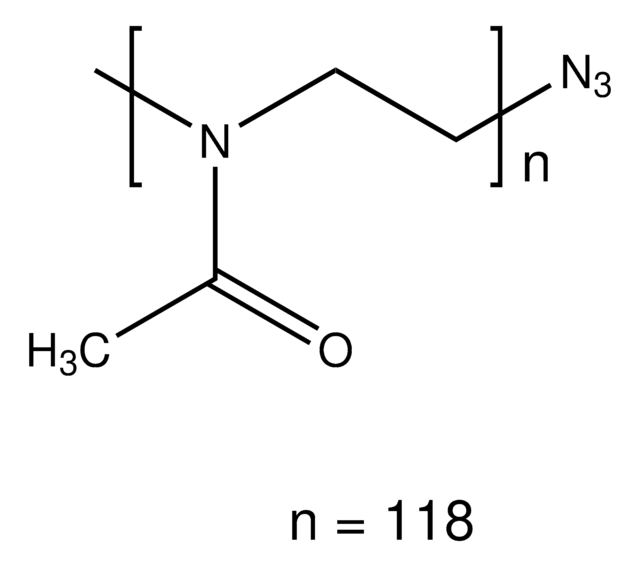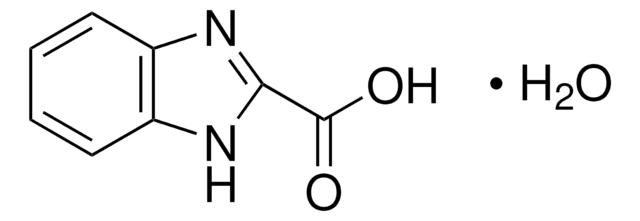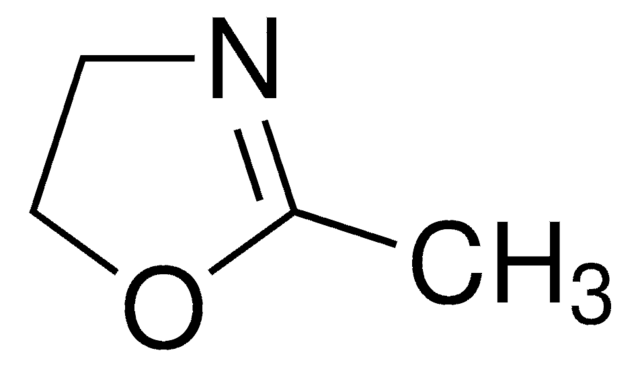740713
Poly(2-ethyl-2-oxazoline)
average Mn 5,000, PDI ≤1.3
Synonyme(s) :
PEOX Polymer
About This Item
Produits recommandés
Vous recherchez des produits similaires ? Visite Guide de comparaison des produits
Application
- Two-photon polymerized poly (2-ethyl-2-oxazoline) hydrogel 3D microstructures: This study presents a novel hydrogel platform based on poly(2-ethyl-2-oxazoline) that allows for the creation of 3D microstructures with tunable mechanical properties, suitable for tissue engineering applications (Czich et al., 2020).
- High definition fibrous poly (2-ethyl-2-oxazoline) scaffolds: This research explores the use of melt electrospinning writing to create high-definition scaffolds from poly(2-ethyl-2-oxazoline), highlighting its potential for creating precise and customizable structures in biomedical applications (Hochleitner et al., 2014).
- Synthesis and evaluation of methacrylated poly (2-ethyl-2-oxazoline): This study focuses on the synthesis of methacrylated poly(2-ethyl-2-oxazoline) for use as a mucoadhesive polymer, demonstrating its potential in enhancing nasal drug delivery systems (Shan et al., 2021).
- High-definition poly (2-ethyl-2-oxazoline) scaffolds: Investigates the use of melt electrospinning writing to fabricate scaffolds from poly(2-ethyl-2-oxazoline), a polymer that offers promise due to its high melting temperature and hydrophilic nature, suitable for various biomedical applications (Hochleitner et al., 2014).
Code de la classe de stockage
11 - Combustible Solids
Classe de danger pour l'eau (WGK)
WGK 3
Point d'éclair (°F)
Not applicable
Point d'éclair (°C)
Not applicable
Faites votre choix parmi les versions les plus récentes :
Déjà en possession de ce produit ?
Retrouvez la documentation relative aux produits que vous avez récemment achetés dans la Bibliothèque de documents.
Articles
Poly(2-oxazoline)s (POx) can be viewed as conformational isomers of polypeptides. They are synthesized via living cationic ringopening polymerization (LCROP) of 2-oxazolines and were almost simultaneously discovered in 1966 by the groups of Litt, Tomalia, Fukui and Seeliger.
The introduction of polymers into the biomedical field has opened new avenues in tissue engineering, implant design, biosensing, and drug delivery.
Wide range of functional polymers for biomedical applications have been synthesized and structurally characterized. Several classes of polymers including biodegradable polymers, hydrophilic & amphiphilic polymers, and stimuli responsive polymers have been prepared using controlled and directed functionalization via "living" polymerization such as RAFT, ionic and ring opening polymerization. Selected polymers have been studied for their structure-properties relationship. "
Notre équipe de scientifiques dispose d'une expérience dans tous les secteurs de la recherche, notamment en sciences de la vie, science des matériaux, synthèse chimique, chromatographie, analyse et dans de nombreux autres domaines..
Contacter notre Service technique